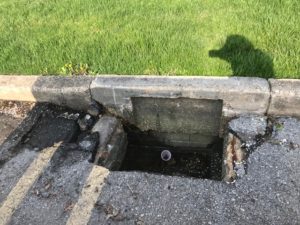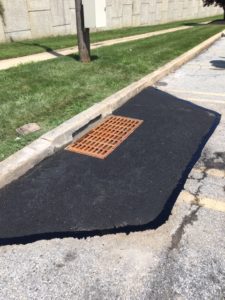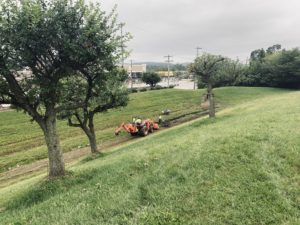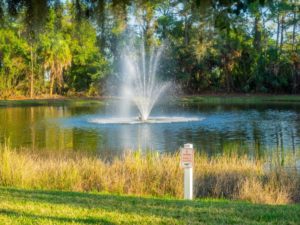Flood Prevention
Let’s face it, the summertime isn’t quite the same as it was when we were kids. If it’s not record-breaking temperatures,
it’s record-breaking storms. And it doesn’t look like things are going to change for the better anytime soon.
There’s not too much we can do about the sweltering heat, but we can help you with flood prevention.
Flood prevention might be one of the most important
investments you can make as a commercial property owner.
Detention basins and inlets require regular cleaning and
maintenance. Leaving these unchecked could spell disaster for your property.
Flood Prevention: Inlets
Sometimes referred to as a drain inlet, drop inlet, curb inlet, and catch basin—
Inlets are specially designed drains that collect rainwater.
While typical street gutters collect some of the rainwater,
inlets are the second line of defense in flood prevention.

Image courtesy of: slcs.us
In a previous blog, we explain that a lack of power sweeping can lead to flooding,
which can have a disastrous effect on the surrounding ecosystems.
Flooding can wash harmful debris into our lakes and streams.
While power sweeping is essential to preventing this, so is proper inlet maintenance.
If not properly maintained and regularly cleaned, inlets will become clogged with debris
and fail to do their job. This results in backups and flooding. Not only is this harmful to the environment,
but it’s also harmful to public safety as well. Properly functioning inlets are an essential component to flood prevention.
What Happens When An Inlet Becomes Damaged?
Over time, rainwater will weaken the joints between the frame and the grate. Changes in weather can
heighten this wear and tear. In winter, water may enter cracks in the asphalt and freeze, exerting pressure on
the overall structure. If such deterioration is allowed to persist, the inlet could eventually cave in on itself.
When this happens, a full repair must be executed immediately.
Below is an image of an inlet that has caved in on itself. Not only does this prevent
the inlet from performing its function, but it’s also an enormous danger to pedestrians, vehicles, and wildlife.

But as you can see below,
Dare made easy work of this heavily damaged inlet,
restoring it to perfect working condition.

Flood Prevention: Detention Basins
A detention basin is a manmade pond, built to manage flooding and storm runoff water.
You may have also heard the term retention basin. Retention basins are the same as detention basins,
only they are built to retain the water, creating a more permanent pond.
Detention basins have an outlet that allows for quicker redistribution of the water.

Both detention and retention basins assist in flood prevention, keeping your property both safer and drier.
Investing in a basin can improve the overall quality of a property and prevent costly repairs.

In addition to keeping your property safe, detention and retention basins provide many environmental benefits as well.
In an earlier blog, we explain that retention basins help filter stormwater sediment.
Retention basins that are neglected lead to flooding and the release of sediment, which can eventually
clog surrounding rivers and streams. This sediment can be harmful to the surrounding wildlife as well.
Retention basin maintenance contributes to the health and safety of both your property and the environment.
Ready to Get Started?
Our team of experts are standing by to help you get your property prepared for the rest of this summer
and for many summers to come. Click the link below and get your quote today!
Get My Quote!
Featured image courtesy of: Jonathan Ford.





